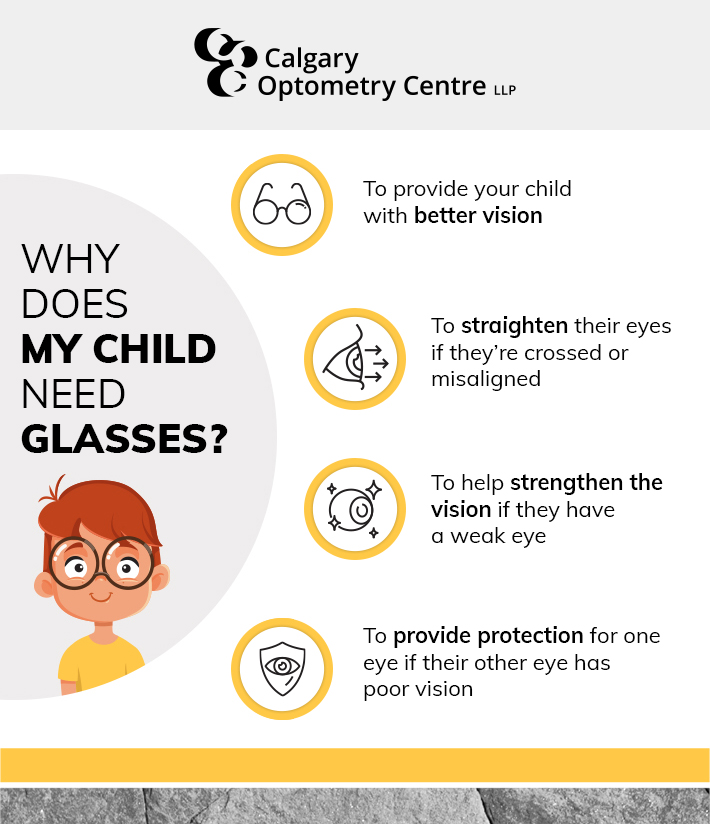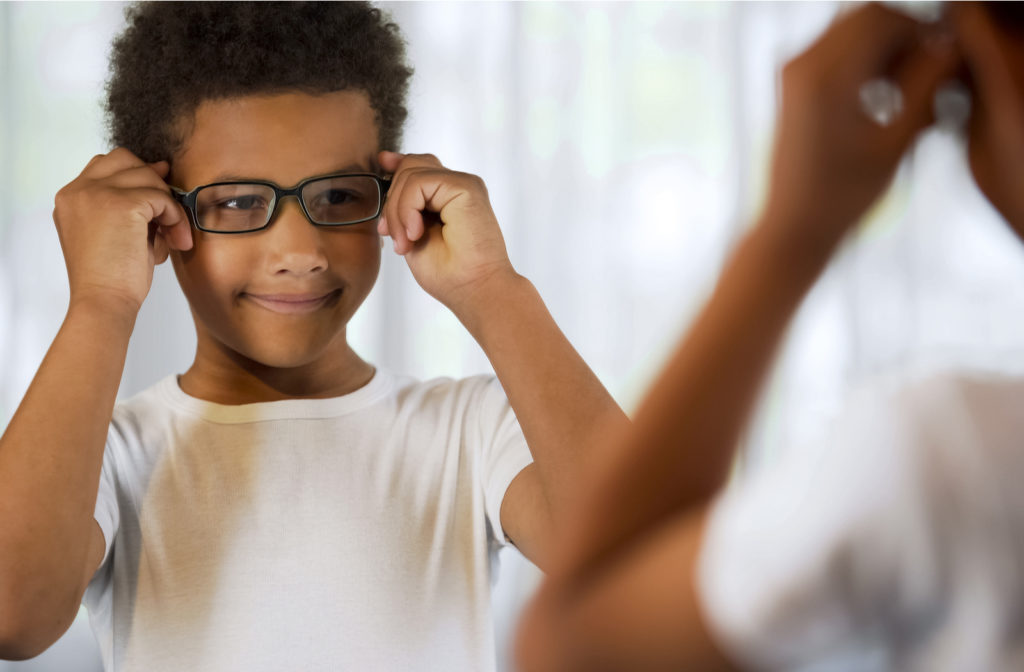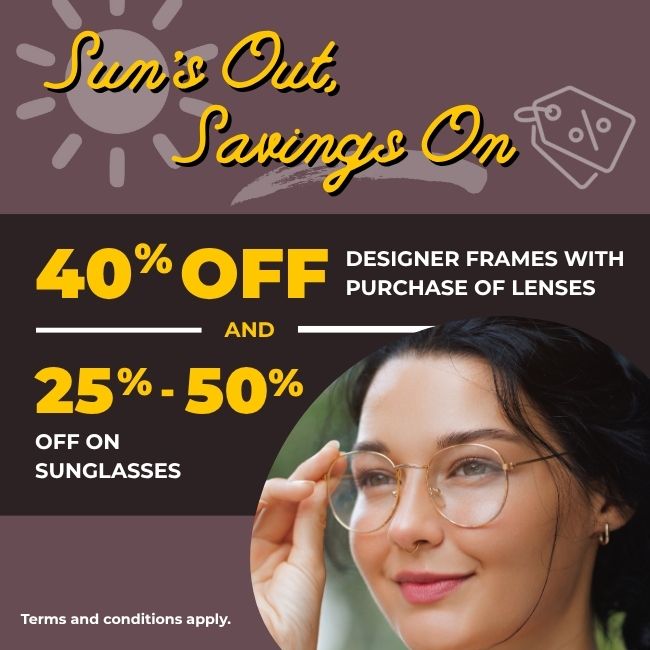We know that you do everything you can to keep your child happy, healthy, and safe. From scheduling playdates to helping with homework, we understand you’ve got a lot on your plate.
If your child is having vision issues, it can add even more work to your plate. The good news is, we’re here to help you at Calgary Optometry Centre.
If your child has recently been diagnosed with a vision condition, you may be wondering if your child actually needs glasses. Keep reading to learn more about common vision problems in children, when glasses are absolutely necessary, and why eye exams are a key part of keeping your child’s vision healthy.
Common Eye Issues in Children
Your child’s eyesight is one of their most important senses because they rely on it to learn, play, and interact with the world around them. If your child can’t see properly it can seriously impact how they develop.
There are many conditions that can impact your child’s ability to see, but the most common are:
Lazy Eye
Lazy eye, or amblyopia, is an eye condition that typically develops within the first seven years of life.
Lazy eye occurs when your child has a developmental abnormality, causing one eye to become weaker than the other. When this happens, the weaker eye will turn inward or outward, affecting your child’s vision.
Refractive Errors
If your child has a refractive error it means that the shape of their eye does not bend light correctly, which can result in distorted vision.
There are three main types of refractive errors that are common in children, including:
- Nearsightedness, or myopia, results in blurred distance vision
- Farsightedness, or hyperopia, results in blurred near vision
- Astigmatism causes blurred vision at all distances
Crossed Eyes
Crossed eyes, or strabismus, is an eye condition in which the eyes are misaligned, resulting in double or blurred vision.
Crossed eyes are caused by a muscle condition in the eyes, causing one or both eyes to turn in, out, up, or down.

Why Does My Child Need Glasses?
If your child is diagnosed with a vision condition, their optometrist may recommend glasses as a treatment option. Because a child’s visual system is still growing, glasses play an important role in ensuring their vision continues to develop normally.
The main reasons your child may need glasses are:
- To provide better vision
- To help straighten the eyes if they’re crossed or misaligned
- To help strengthen the vision of a weak eye
- To provide protection for one eye if the other eye has poor vision

How Can I Tell If My Child Needs Glasses?
For young children, it can be difficult for them to communicate that they’re having trouble with their vision. As a parent you can look for the following signs to see if your child may need glasses:
- Squinting to see an object clearly
- Tilting head or covering one eye when looking at an object
- Sitting too close to the television or holding devices too close to their eyes
- Rubbing eyes excessively
- Complaints of headaches or eye pain
- Having difficulty concentrating on school work
- Traces words with their finger when they’re reading
If you suspect that your child is experiencing problems with their vision, schedule an eye exam with your optometrist. Only a proper eye exam can determine whether or not your child needs glasses.
How to Make Wearing Glasses Fun
Just because your optometrist says your child needs glasses, it doesn’t mean your child will be on board with the idea.
If your child refuses to wear their glasses, try the following:
- Encourage & reward your child for wearing their glasses
- Let your child choose the colour & style of their frames
- Show your child people they admire who also wears glasses
- Periodically check to see if their glasses are the proper fit
If you’re still having difficulties getting your child to wear their glasses, you can talk to their optometrist about other vision correction treatments such as vision therapy or contact lenses.
Early Detection is Key
Regular comprehensive eye exams are the key to preventing future vision issues for your child.
The Canadian Association of Optometrists recommends the following frequency for children’s eye exams:
- Your child should receive their first eye exam between the ages of 6 to 9 months
- Between the ages of 2 and 5 years, your child should see their eye doctor for the second time
- When your child reaches age 6, they should start getting an eye exam every year until they turn 19
If your child is experiencing vision problems, or if it’s time for their next eye exam, we’re here for you at Calgary Optometry Centre! Book an appointment today or feel free to call us if you have any questions or concerns. We look forward to seeing you!




